Meet Anna Breytenbach, the animal communicator.
Hi Anna! Thanks for taking the time for this, I really appreciate it! 🙂
1. Tell us a little about your personal background/where you’re from, etc.?
I was born and raised in Cape Town, South Africa and had a very ordinary suburban upbringing without any special exposure to animals, etc. After high school I studied Psychology, Marketing and Economics at the University of Cape Town and entered the corporate world, enjoying a successful career for 12 years in Human Resources and Information Technology, which took me to Australia and the USA.
Now I live between the beach and mountain on the Cape’s south peninsula, and travel in southern Africa, Europe and the USA to conduct workshops.
2. How did you first get introduced to “animal communication”? Is this something that you discovered at a young age, or did you come across this amazing gift of yours later on in your life?
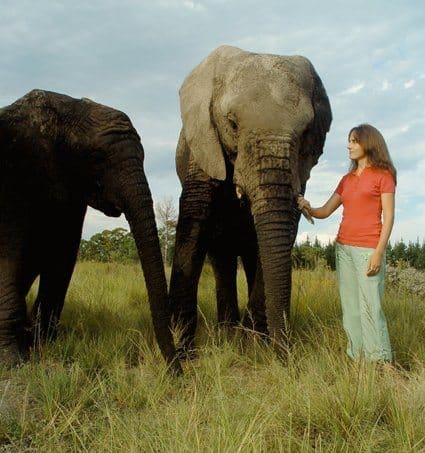
In my twenties I decided to live out my passion for wildlife (big cats in particular) by becoming a cheetah handler, and with this I volunteered at a conservation education project on weekends. When I moved to America, I expanded this into wolf and other predator conservation.
Observing and being in close contact with these essentially wild animals probably opened me in empathic ways. However, the so-called psychic experiences began when I was doing my tracking training with the Wilderness Awareness School based outside Seattle, Washington.
As I was raised in Africa, I knew little to nothing about North American species and therefore couldn’t analyze or interpret the footprints I was looking at based on visual cues. My mind just simply didn’t have the “database” of search images loaded.
My mentors told me to close my eyes and “feel” the energy from the track – whereupon I’d get brief mental image or other sensings of which animal had left those pawprints. At first I thought I was losing my mind, but again and again these “sudden knowings” would prove to be true.
I then researched the phenomenon of Interspecies Communication and chose to study in this field through the Assisi International Animal Institute in the USA, doing case studies and various courses to advanced levels.
Eight years ago I returned to South Africa as I’m particularly passionate about our wildlife and Nature on this continent.
3. In your introductory video (on your website), you say that interspecies communication is meant to be a “natural skill”. Could you please expand on this?
Can “anyone” really do this? How would you define the term (interspecies communication)?
I’d define the term as direct mind-to-mind communication or transference of information. Although it’s as much a matter of the heart as the mind.
Yes, we all have these abilities hard-wired into the very design of our brain. To our native ancestors, these skills were a part of everyday life, as much as vocalized language or other physical forms of expression.
Intuition is natural; the trick is knowing how to access it intentionally when we want to instead of waiting for it to happen spontaneously (e.g. hunches, gut feelings, etc.).
4. At this point, I’m sure a lot of people (including myself 🙂 ) are dying to ask a specific question, and that is: How do you actually communicate with the animals/what kind of language do you use?
Do you use imagery, telepathic means? Intuition perhaps? Or some sort of “extraterrestrial” language coming from an unknown civilization? 😉
It’s a simple matter of quieting the mind and intending to connect. The animals pick that up right away, very easily. Then I send either a mental image, or a thought/sentence (not vocalized), or an emotion… whatever comes naturally. There’s no effort required on the sending side of things. Transference happens at a quantum level, in the universal language of pure energy.
5. How do our “animal friends” respond to you/how do you receive and decipher what “they” have to tell you?
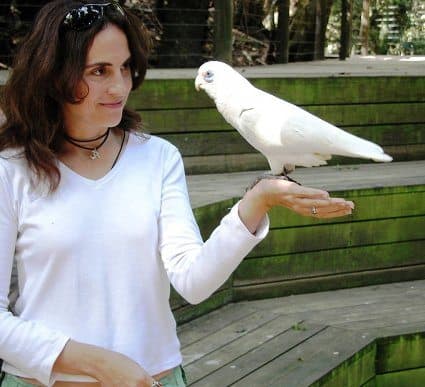
Animals simply show their truths energetically, and that incoming message on my side (in its pure quantum form) gets drawn up from the unconscious/intuitive reception to my conscious mind – at which point my brain will attach a mental image, word, sensation or emotion to it. That’s already the first layer of “interpretation”, and some things can get lost in “translation.”
6. Is it possible to “guide” animals without using actual words/gestures? That is to say, can you tell them to accomplish simple tasks, and can/will they respond to your queries?
Yes, per the process above, we can ask or suggest. However, they always have their choice – as the sentient, self-determining beings they are – to agree to comply or not.
7. Can this amazing communication technique be applied to any animal? Wild animals, domestic ones, reptiles (snakes?), insects (ants?)?
Pardon me if some of my questions sound a little “naive”, but it’s such an intriguing and unusual topic. Besides, very little seems to be known on the matter.
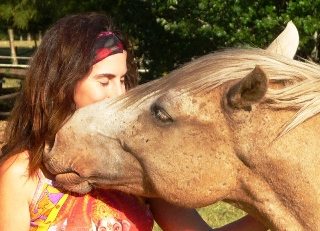
The techniques are exactly the same no matter what species we’re communicating with, from fish to flies, ants to elephants, cats to cabbages. Yes, plants as well as any other aspect of the natural world.
8. What type of services do you focus on with your clients? What is your area of expertise? Can you address animals that have behavioral or emotional issues?
For example, my dog “Makala” is adorable with my relatives, but sometimes has a bad tendency to “bite” strangers who come for a visit. How would you tackle the issue (advice appreciated lol)?
I focus on conducting workshops to empower people to do this themselves – to get reacquainted with their natural intuition. Because of my travel and workshop schedule, I seldom have time for private consultations anymore. A lot of my time goes to my pro bono work which focuses on wildlife: rehab, rescue, reintroduction, etc. Specifically I work with baboon, elephant, dolphin and lion conservation issues.
In the case of a behavioural or emotional issue, the process is to communicate with the animal directly to find out what’s motivating the behaviour. Once that is known, consequence and alternatives can literally be discussed with the animal. It’s a great way to find mutual solutions…or determine what healing interventions might be required/desired by the animal if relevant.
9. Are there any anecdotes that you’d like to share with my audience? Instances where you were able to identify the causes behind strange animal behavior patterns for instance?
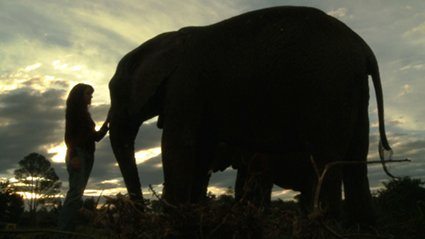
There are many – to do with, for example, horses who explain why they do or don’t want certain riders on their backs based on human personalities or possibly traumatic events in their past that continue to affect their present-day response patterns.
Then there was the case of the cat who wouldn’t retract his claws when playing, because – in his view – the women in the household “don’t retract their claws”, so why should he? Turns out he was seeing human fingernails as claws, and was miffed at the lack of fairness. When I explained that we humans can’t retract our “claws”, he scoffed that he thought that to be a pretty silly design flaw!
Another example is a domestic cat who befriended a puff adder snake and would lead it to safety away from the household which was occupied by people intent on killing the snake if they could find it.
I’ve worked with elephants who are so deeply traumatized by witnessing their family members being massacred in euphemistically-named “culls” that they cannot relate to any other being other than in an automated manner.
10. Finally, what kind of courses/training would you recommend to newbies interested in animal communication? Tell us about some of your workshops, etc.
I also see you organize “Animal Communication Safaris”. Wow, would love to hop on one of those! 😉 🙂
The basic weekend animal communication workshops I offer around South Africa give participants all the tools to communicate effectively across the species divide. We go deeply into the “Hows” and get down to practical matters in small groups (so that coaching and learning is maximized).
We look at applying the techniques in various ways, deepening our understanding of how to address behavioural issues, work with nature and wildlife sensitively, ascertain physical symptoms via telepathy, and connecting with animals who have left their bodies.
The longer “expedition” experiences involve going to wildlife in their natural habitat. These workshops last between four to six days and involve direct contact with animals in the wild, with only a few hours of workshop content per day. Whether a safari in Botswana or swimming with dolphins in Mozambique, we get to connect with the physical and spiritual realities of these amazing species.
Details of all workshop events can be found on the Events page of my website at www.animalspirit.org.
Thank you Anna, what a great interview! 🙂

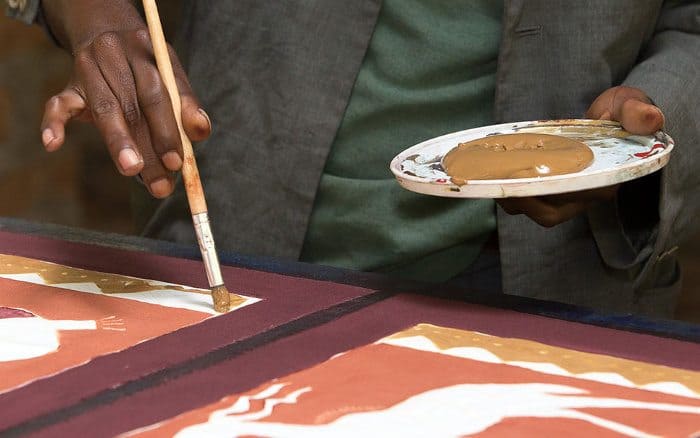
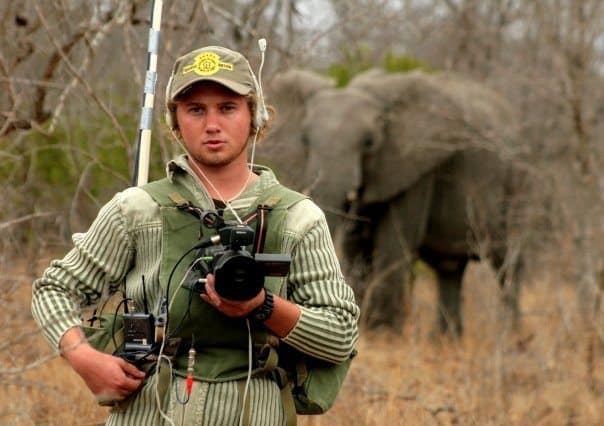
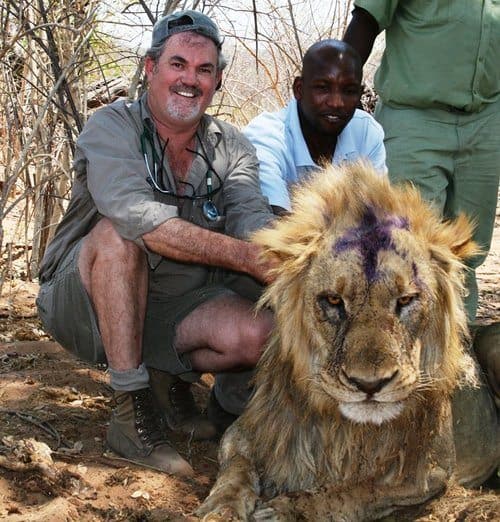
RE: Mary Monaco’s email address:
[email protected]
9/4/2023
Hello Anna and Michael,
I live in the USA, (Connecticut to be exact.) I have spent over 35 years working with marine mammals (cetaceans, pinnipeds, Polar Bears and a large variety of exotics in zoos and aquariums across the US.) I have always had passion for all aspects of the animal field. I began when I was 17 and was one of the first to work with a Commerson’s Dolphin.
Back then it was considered unprofessional to think that animals had thoughts and emotions.
I knew in my own heart that was wrong. I have communicated with animals in a basic form, however, not consistently. I would like to start at the beginning and sharpen my skills so as to help all animals with their health and mental well-being. I would like to continue in the animal field as a liaison between animals and humans.
Would you please list a rough outline of courses (both in person and online) that you would highly recommend? I have always had integrity, and have been authentic and genuine in my career. I want to KNOW the true nature of an animal’s state of health, thoughts and emotions. I don’t want to be guessing. I have quite a bit of experience. However, I need your guidance to be effective.
Thank you for your time and consideration,
Mary
want to make a course on animal cominication plus work with them for experience. 2.like to swim with dolphins
Hi Michael,
Why there are no clear paths to learning interspecies communication? Anna seems to be on sabbatical and Assisi’s website is not offering any courses. I am a teacher, and a natural lover of nature. I try to teach my students to love and respect nature as much as I can. But I know I can do more. I would really like to learn to communicate and serve other species. Is Anna out of service? Is she ok? All the information I see is from 2012-2013. Who do we contact to learn interspecies communication?
Thank you,
Maria
Hi Maria,
I’m sorry to hear you are struggling to find relevant courses.
I know that Anna will be hosting an online event in 2023 (For the Love of Animals). But I’m not sure about her other upcoming activities to be honest.
What I know for certain is that she no longer offers local workshops (but may host occasional immersive retreats in years to come).
Alternatively, are you familiar with James French’s “Trust Technique”?
https://www.trust-technique.com
It’s “a method of mindfulness between animals and people, that connects and heals both”.
You may also find an ethical animal communicator near you by searching this international directory of practitioners:
https://animaltalk.net/AnimalCommunicatorDirectory/
Last but not least you can look up Anna Evans, though she mainly teaches in French.
http://communicationintuitive.com
I hope this helps, happy 2023! 🙂
Michael
I understand there are webinars and DVD to learn to ‘communicate’ Where can I get/access these?
Please visit the “Animal Spirit” website for more info.
Hi
I have recently seen a video of Anna communicating with animals. I am in need of some help with my dog. She has suddenly out of the blue, started attacking my other dogs. How do we contact Anna? Does she do one on one sessions? I really need some help please.
Cyndi
Hi Cyndi,
Anna offers consultations, so I’m sure she’ll be able to help. The best is to contact her via the Animal Spirit website:
http://www.animalspirit.org
Hope this helps and I wish you the most miraculous year 2016! 🙂
Michael
Good morning,
Went through the interview, it was cool. I have a passion of wanting to communicate with animals. Which School can you recommend for me to study ANIMAL COMMUNICATION?
Thanks in anticipation of your response.
Oladimeji Oshode.
Hi Oladimeji,
Glad you liked the interview and would like to learn some more about animal communication! 🙂
In which country are you based?
As Anna mentions, there are various schools and courses you can attend, one of which is the Assisi International Animal Institute (based in the US)!
You can also learn directly from Anna via Animal Spirit (in South Africa), and she may even recommend good schools or courses to attend in your area.
Hope this helps and best of luck with your passion!
Michaël
Hi I am based In India. Can I learn here ? Animal Communication?
For more info about animal communication, feel free to consult Anna’s “Animal Spirit” blog: http://animalspirit.org
Anna….this is what I want to do for the rest of my life! Based in South australia…Adelaide. What is my first port of call?
Hi Ali! Why don’t you visit Animal Spirit’s resources section (http://www.animalspirit.org/projects-resources; cf “Useful Links” at the bottom of the page) and take it from there?
All the best! 🙂
Michael
Did you get help with Makala (your dog)? This was an excellent interview. Definitely renewed my interest in this ability. Thank you
Glad you enjoyed it Roberta! 🙂 Makala is a lot calmer nowadays, but I guess it also has a lot to do with aging…in East Africa we’d now have to call him a “Mzee” (Swahili word for “old man” or “elder”; generally speaking it’s actually a title of respect for older people)! 😉
i’m from Mexico i’m 18 years old and i’m really moved about all this language that you can do. I believe, as you do, in the soul of living beings, i don’t really know a lot and i haven’t very information of this, but i know and i want to believe that every thing have ‘something’ that makes special and amazing. So this changed my perspective about living beings, and make me believe in a lot of things and studying about this. Thanks
Cheers Mitchell, glad you enjoyed the interview! 🙂 Have you watched the documentary called “The Animal Communicator”? If not you should really check it out, here’s an extract: https://vimeo.com/136946715 😉
Looks like the “Animal Communicator” link previously shared no longer works. 🙁
Here’s an extract of the full documentary though (Diablo part):
https://youtu.be/gvwHHMEDdT0
And there’s also a more recent Carte Blanche report on the subject (used to be available on their website, though it has now been removed).
Cheers and enjoy! 😉
the documentary 🙂
https://www.youtube.com/watch?v=TfP-XBUbMvs
Cheers! 😉